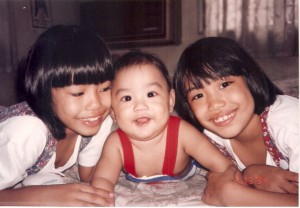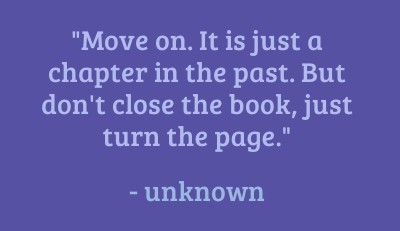So if someone says to us, by word or by action, “You should be over
that by now,” we can recall the words from the Talmud: “Judge no one before you have been in his place.”
 When people ask how many kids I have, I always say three children and pretty soon, the question goes on details like “are they in school”, “how old are they?” If I am not in the mood, I just say two children because the conversation will always lead to my son’s whereabouts. The moment I say my third child died 10 years ago, I feel a sense of discomfort.
When people ask how many kids I have, I always say three children and pretty soon, the question goes on details like “are they in school”, “how old are they?” If I am not in the mood, I just say two children because the conversation will always lead to my son’s whereabouts. The moment I say my third child died 10 years ago, I feel a sense of discomfort.
More often than not “you’ve moved on , right?” , or “you found closure already?”
If a well-meaning friend said something inappropriate with respect to Luijoe’s death, I would try to focus on the intent of the comment instead of the comment itself. Maybe, my friend just didn’t know what to say.

Move on. It is just a chapter in the past but don’t close the book, just turn the page. – Unknown
However when they are acquaintances, I find it terribly annoying. The word “closure” carries with it an underlying message of impatience: “OK,” the person appears to be saying, “it’s time to get over it.”
Am I being overly sensitive? Perhaps.
It is not just me though. In meetings with the Compassionate Friends, the word “closure” bothers most parents. The “c word,” seemed to push all our buttons.
It is understandable that our friends feel uneasy in the presence of pain. How they wish they can take away our grief. That’s okay. But bereaved parents resent the implication of failure or self-absorption if one can’t adhere to a recovery schedule.
We do, in our own individual ways, gradually get better at bearing our loss. Mainly, the pain simply softens with the passage of time. Moving on means that we live a new normal never forgetting the love and memories of our beloved.
Ashley Davis Prend says that closure is not for people we love or for feelings.
Closure simply does not exist emotionally, not in a pure sense. We cannot close the door on the past as if it didn’t exist because, after losing someone dear to us, we never forget that person or the love we shared. And in some ways, we never entirely get over the loss. We learn to live with the loss, to integrate it into our new identity.
Imagine if we really could end this chapter in our life, completely. It would mean losing our memories, our connections to those we love. If we really found closure, it would ironically hurt even more because the attachment would be severed. And this attachment is vital to usâ€â€the memories are treasures to be held close, not closed out.
Perhaps it is better to think in terms of healing. Yes, we can process our pain and move to deeper and deeper levels of healing. Yes, we can find ways to move on and channel our pain into productive activities. Yes, we can even learn to smile again and laugh again and love again.
I have not closed the door on what my loss meant, for if I did that, I would inadvertently close the door on all the love that Luijoe and I shared. And that would truly be a loss too terrible to bear.

Hi Noemi, I will continue praying for you and your son.
.-= Smarla´s last blog ..I Brought Home a Canned Tarsier from Bohol as a Souvenir =-.
I hope you don’t mind me sharing this blog post on my Facebook because up until now, I never really understood how I should feel over my father’s death even if it has been 3 years ago. I always thought that if I still cried over his death, it would be over re-acting. But now I know it’s still okay for me to cry and that I should never get over his death or maybe even a break-up. Thank you for sharing this.